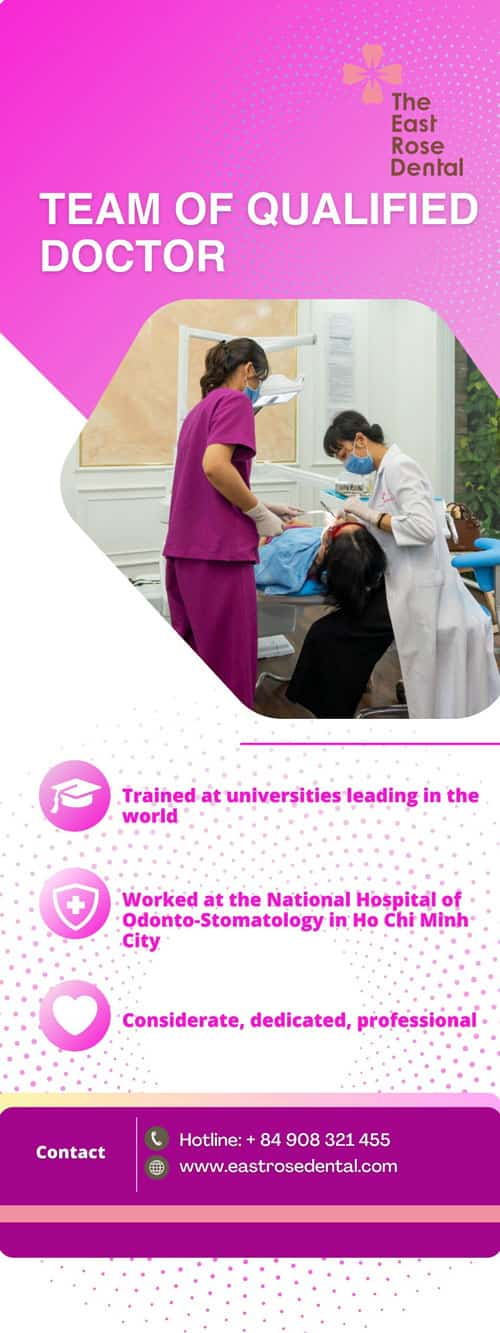11 Common Misconceptions About Oral Care
Oral care is a concern for everyone, yet many people still believe in misconceptions about dental hygiene. These misunderstandings can negatively impact oral health if left unclarified. In this article, we’ll explore common myths and provide accurate information to help you take better care of your teeth. Let’s dive in with The East Rose Dental Clinic
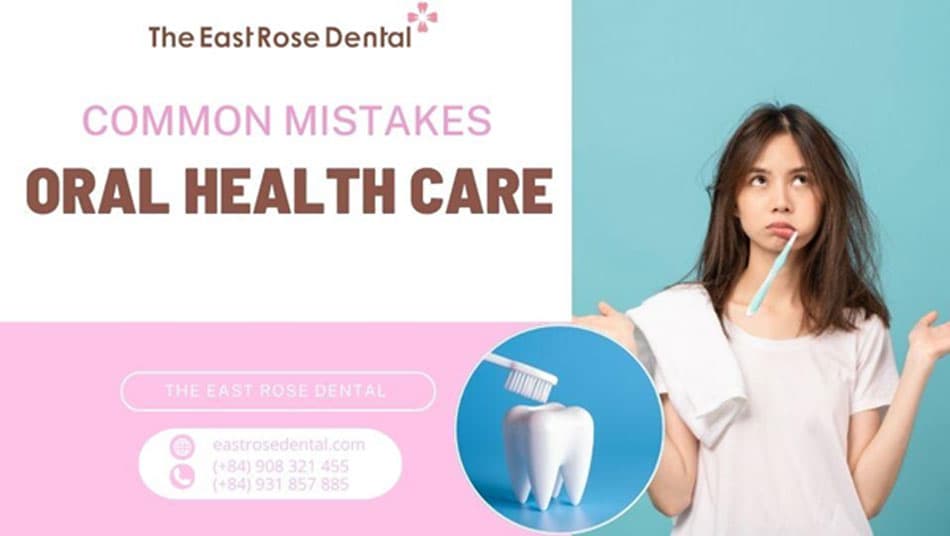
Common "Harmful" Misconceptions About Oral Care
Oral care not only helps protect your health but also provides a confident smile. However, many people continue to believe and practice numerous popular misconceptions about dental hygiene on a daily basis. These false beliefs can make oral care less effective and may even harm your teeth and gums. Below is a compilation of common mistakes often made during oral hygiene.
1. Brushing harder cleans teeth more effectively.
Many people mistakenly believe that brushing harder will make teeth cleaner. However, brushing too hard can cause more harm than good.
- It can wear down tooth enamel and lead to gum recession, making teeth more sensitive to hot, cold, sour, or sweet foods.
- Worn enamel can reveal the natural yellow color of dentine, dulling the appearance of teeth.
- Brushing too hard can quickly damage the bristles of your toothbrush, so it's advisable to replace your brush every 3–4 months (or sooner if the bristles are worn).
The American Dental Association (ADA) recommends brushing only twice a day—once in the morning and once at night—for about 2 minutes each time and using a soft-bristled toothbrush to better protect your teeth and gums.
2. Brushing right after eating is best.
Brushing your teeth immediately after eating may seem logical, but it’s actually not beneficial for tooth enamel, especially after consuming acidic foods like oranges, lemons, or soda. The acids in these foods and drinks can temporarily soften tooth enamel, and brushing right away increases the risk of eroding that enamel. To protect your enamel, wait at least 30 minutes after eating to let saliva in your mouth neutralize the acids before you begin brushing.
3. Baby Teeth Don’t Need Much Care Because They’re Temporary
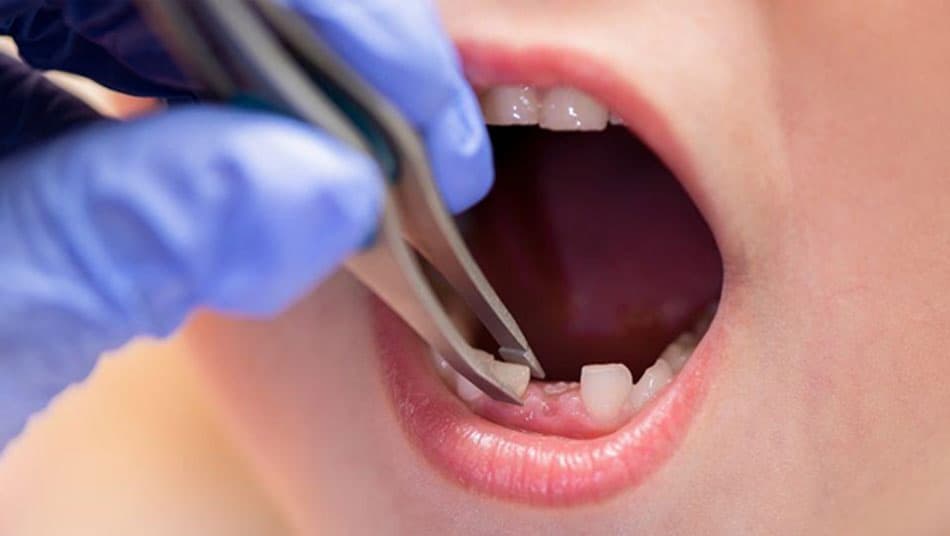
Many parents believe that since baby teeth are only temporary, they don’t require much care. However, baby teeth play a crucial role in a child’s development. They help maintain space for permanent teeth to erupt properly and support chewing and speech development. If baby teeth decay or fall out too early, children may face issues with the alignment of their permanent teeth later on. Therefore, taking care of baby teeth is fundamental to ensuring a healthy and properly developing smile.
4. Using More Toothpaste Cleans Teeth Better
Using too little or too much toothpaste can affect brushing effectiveness. If you use too little, there won’t be enough foam to clean your teeth effectively, and your teeth won’t receive maximum protection from fluoride.
So, what’s the appropriate amount of toothpaste?
- Adults: The ADA recommends a pea-sized amount of toothpaste for optimal dental protection.
- Children: To reduce the risk of swallowing fluoride, use a smaller amount, about the size of a grain of rice. This helps minimize the chance of fluorosis, which can cause permanent staining or discoloration of the teeth later on.
5. No Need to Replace Your Toothbrush Until It’s Damaged
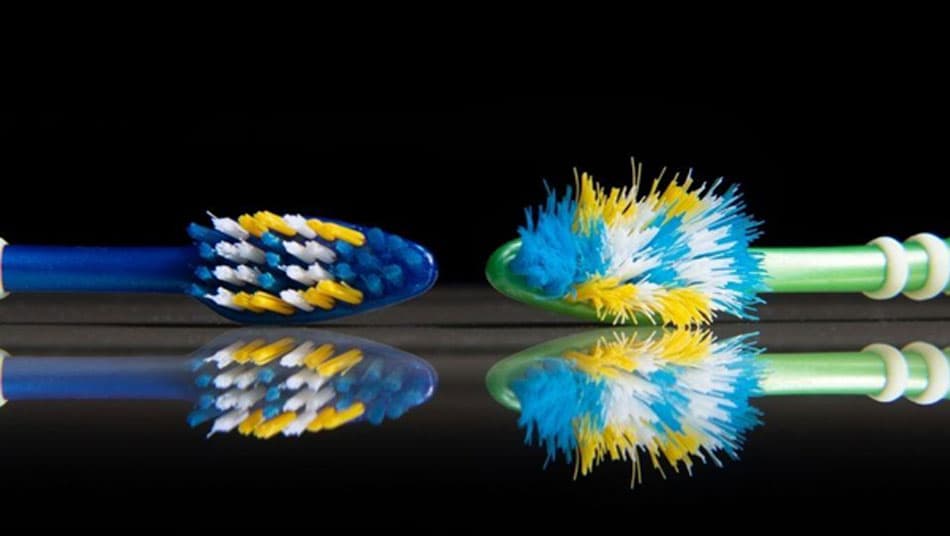
Many people think they only need to replace their toothbrush when they notice visible damage or wear in the bristles. However, the American Dental Association (ADA) recommends changing your toothbrush every 3-4 months, even if there are no obvious signs of wear. Over time, bristles can become worn, lose their elasticity, and become less effective at cleaning. Additionally, an old toothbrush is an ideal environment for bacteria to thrive, which can lead to oral health issues such as gum disease or cavities.
6. Floss and mouthwash are not required if you brush well.
Many people believe that brushing their teeth thoroughly is enough to eliminate all plaque and bacteria in the mouth, making dental floss and mouthwash unnecessary. However, a toothbrush cannot reach the tight spaces between teeth, where food particles and bacteria can easily cling and accumulate over time. Flossing helps remove plaque in these hard-to-reach areas, preventing the risk of cavities and gum disease.
By using dental floss daily, you not only clean your teeth but also protect your gums and reduce the risk of gingivitis. Furthermore, mouthwash not only provides an additional layer of cleanliness but also leaves your breath feeling fresh and kills harmful bacteria. Bacteria that accumulate over time in the gaps between teeth can lead to infections and gum diseases, impacting overall oral health. Therefore, using dental floss and mouthwash is not just an optional extra but an essential part of a comprehensive oral care routine.
7. Removing Tartar Weakens Teeth
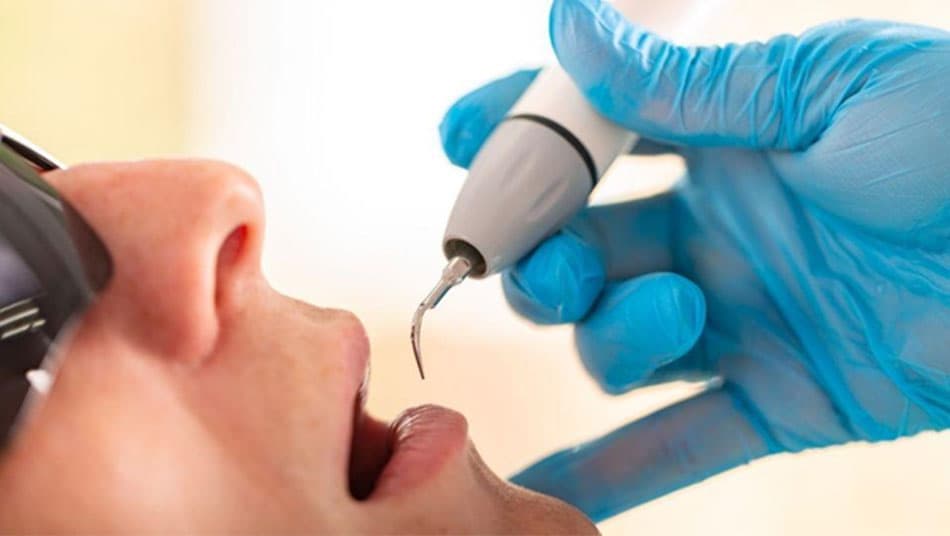
Some people worry that removing tartar will weaken or wear down their teeth, but this is not the case. Tartar is a hardened plaque that accumulates from food and bacteria firmly attached to the surface of teeth. If not removed regularly, it can lead to gum inflammation, cavities, and even periodontal disease—a condition that can cause teeth to become loose.
Regular tartar removal is essential for maintaining oral health, and the American Dental Association (ADA) recommends having tartar cleaned every 6 months. This helps eliminate harmful bacteria and protects teeth and gums from disease without affecting the structure or strength of the teeth. This is a necessary step in oral care to ensure the health and sturdiness of your teeth.
8. Tooth Number 6 is a baby tooth.
Many people believe that tooth number 6 is a baby tooth and will fall out as they grow. In actuality, around the age of 6, tooth number 6 (also referred to as the first molar) emerges as the first permanent tooth and does not require replacement. This tooth plays a crucial role in grinding food and maintaining the stability of the jaw structure.
If not properly cared for, tooth number 6 is highly susceptible to cavities due to its constant exposure to food. Many parents mistakenly think that this tooth will grow back and choose to have it extracted. Once lost, the neighboring teeth can shift, leading to significant impacts on chewing abilities and facial aesthetics.
9. Cleaning the tongue is not important.
Many people believe that brushing their teeth is enough to clean their mouth, neglecting the importance of tongue hygiene. In reality, the tongue is a breeding ground for bacteria and plaque, especially in the crevices and grooves. When left uncleaned, bacteria on the tongue can cause unpleasant bad breath and be a potential source of gum disease and cavities. By using a soft toothbrush or a tongue scraper daily, we can remove bacteria and dead cells, leading to fresher breath and preventing oral diseases.
10. Only Visiting the Dentist When There Are Oral Issues
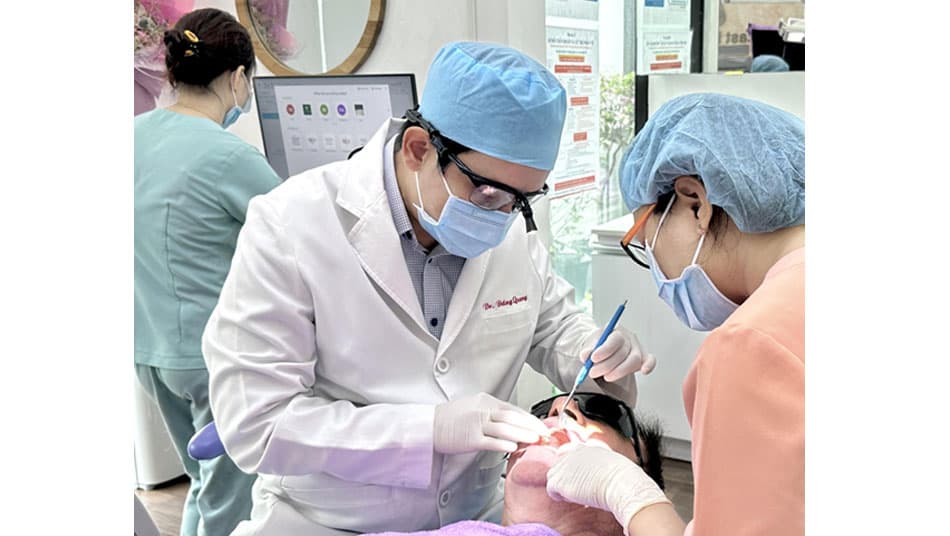
Most people have a fear of dental visits and often believe that they should only go to the dentist when facing issues like tooth pain, bleeding gums, or swollen gums. However, this is a misconception. In reality, regular dental check-ups (every six months) help detect early signs of abnormalities and prevent oral diseases before they become severe.
By visiting the dentist regularly, they can remove plaque and tartar and assess the overall health of your teeth and gums, helping to maintain long-term oral health. Waiting until clear symptoms arise before seeing a dentist can lead to more serious problems, higher costs, and a detrimental impact on your quality of life.
11. Dry mouth does not affect oral health.
Many people often think that dry mouth is just a minor issue and does not impact oral health. However, this is a completely misguided belief. Dry mouth, also referred to as reduced saliva production, can lead to many serious problems.
Saliva not only helps cleanse the oral cavity, but it also plays a crucial role in neutralizing acids from food and preventing the growth of harmful bacteria. When saliva is lacking, the risk of tooth decay, gum disease, and foul breath increases. Moreover, prolonged dry mouth can make swallowing and digesting food difficult, diminishing quality of life. Therefore, recognizing and addressing dry mouths is vital for protecting long-term oral health.
This article summarizes 11 common misconceptions about daily oral care that many people encounter. We hope that through this article, you will gain a correct understanding and change your oral hygiene practices to avoid mistakes that could be harmful. For more accurate knowledge and advice on oral care, don't hesitate to consult the experts at The East Rose Dental Clinic!
Services
Working Time
- Monday - Friday: 08:00 - 19:00
- Saturday: 08:00 - 18:00
- Sunday closed
Contact Info
- Hotline 1: (+84) 908 321 455
- Hotline 2: (+84) 931 857 885
- Mobile: (+84) 8 3925 8778
- Phone: (+84)2 838 258 778
- info@dentalrose.net
- rosedentalclinicvn@gmail.com
 English
English  Tiếng Việt
Tiếng Việt
